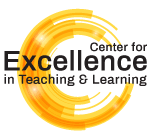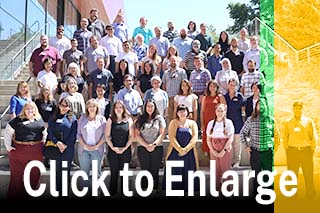|
CETL | Canvas | AI Guide | Course Design | Online | Software | Workshops Supporting New(er) Faculty Success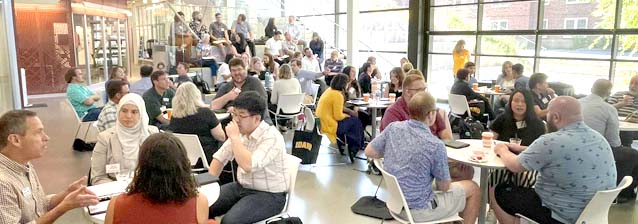
This year’s event provides a dynamic introduction to the University of Idaho and “the Vandal Family,” all while being mindful of the demanding schedule leading up to the beginning of the semester. Accordingly, New Faculty Orientation is spread across 3 mornings in August and continues in the form of an engaging New(er) Faculty Seminar distributed across the academic calendar. Our goal for these three days of orientation is to help you get started with your work at the University of Idaho and to introduce you to the multiple resources, units, and people who are here to support your success. The New(er) Faculty Seminar provides opportunities to connect with colleagues and to more deeply explore many issues related to our work as faculty over the course of the academic year. 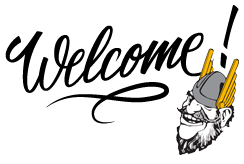
Immediately below you will find the agenda for the New Faculty Orientation; a list of campus and community offices and opportunities that can support you professionally and personally; a schedule and brief description of the New(er) Faculty Seminar sessions; and resources essential to have a strong start at the University of Idaho. On behalf of the Center, the Office of the Provost and Vice Provost for Faculty, and the entire Vandal Family, WELCOME!
2023 New Faculty Orientation Schedule(coffee, tea and light fare)
(coffee, tea and light fare)
(coffee, tea and light fare)
|
||||||||||||||||||||||||||||||||||||||||||||||||||||||||||||||||||||||
| February 7 3:30-4:30pm |
Developing a Productivity Pipeline: Targets, Goals and Action Plans Rachel Halverson Organization is vital to a well-balanced career. This session will introduce faculty to a highly effective strategy for setting targets, identifying goals, and developing action plans –and an agenda—for accomplishing them. Together, we will work towards the construction of a productivity pipeline that works for you. |
| February 21 3:30-4:30pm |
Hot Topics and Difficult Dialogues Kelly Quinnett, Brian Smentkowski Part of our responsibility as teachers and scholars is to investigate and discuss issues that are often controversial and around which divergent opinions exist. We want our students to speak up, but…we’ve all been there. We want productive dialogue and civility to prevail in a climate of mutual respect. But how? In this session, we will explore and practice context-appropriate strategies for (1) maintaining a productive and inclusive learning environment, (2) addressing hot topics and difficult dialogues, and (3) dealing effectively with incivility in our classes. |
| March 6 3:30-4:30pm |
Work/Life Balance and Research Collaborations Marty Ytreberg This session is designed to help new(er) faculty thrive by attaining and maintaining work-life balance and through creative collaborations. Research collaborations are valued at the U of I, and are one of the many keys to a satisfying and invigorating career in higher education. This session will share strategies for keeping your balance and developing sustainable and impactful research collaborations. |
| March 27 3:30-4:30pm |
Preparing for Promotion and/or Tenure Diane Kelly-Riley This is a session you should attend annually. Diane Kelly-Riley, UI’s Vice Provost for Faculty, will share an inventory of strategies designed to help you develop and represent your credentials for promotion and/or tenure. She will share and contextualize important, and occasionally changing, institutional policies and guidelines, and also help you set and progress towards clearly defined goals. Video Recording (1 hr) |
| April 3 3:30-4:30pm |
Mentoring Graduate Students Jerry McMurtry The only thing worse than no mentoring is bad mentoring. This session focuses on strategies newer faculty can develop and apply to successfully mentor graduate students, mindful of critically important institutional policies, opportunities, and deadlines. |
| April 10 3:30-4:30pm |
Refining a Pedagogy that Works for You and Your Students Douglas Habib Settling into a gratifying and effective pedagogical style doesn’t have to be a chore. This session explores different techniques you can use to find, adapt, or adopt what works best for you and your students. We will discuss practices that you have used, learning goals that you have, and different options that can simplify and enhance your effort and impact. |
New(er) Faculty Seminar Schedule
Fall 2023
| September 6 3:30-4:30pm |
What I Need to Succeed: Charting a Course for a Successful Year and Career Brian Smentkowski, Kristin Haltinner, Erin Chapman This session explores what it is that you, our faculty, “need to succeed” as teachers, scholars, and members of the UI academic community. We will examine different definitions of success –including your own—and pathways to accomplishing them. Together, we will chart a course to a successful and well-balanced career. |
| September 26 10:00-11:00am |
Third Year Review and Dossier Preparation for Tenure Track and Non-Tenure Track Faculty Diane Kelly-Riley Please join Vice Provost for Faculty Diane Kelly-Riley for a training on the Third Year Review and Dossier Preparation for Tenure Track and Non-Tenure Track Faculty. This training is part of the series on Supporting the Work of Department Chairs and Unit Administrators and is intended for all faculty who are on track for their Third Year Review, unit administrators, deans, associate deans and administrative assistants. (Offered via Zoom Only) |
| October 11 3:30-4:30pm |
Developing a Strategic Plan for Funding Your Research Carly Cummings Developing a successful scholarly presence is important at a research-intensive university. This session is designed to help you develop a strategic plan for funding your research. |
| October 25 3:30-4:30pm |
Learning Through Diversity Brian Smentkowski, Erin Chapman It’s important to be mindful of the diverse array of learners in our classes and how we can reach and teach ALL students, regardless of instructional modality, in an inclusive manner. This session shares a framework and applied strategies to advance equitable educational experiences. Slides |
| November 15 3:30-4:30pm |
How the Library Can Support Faculty Success Ben Hunter On every college campus, and especially at the University of Idaho, the Library is a place where learning begins and flourishes. This session will cover how the UI Library can help support your success as a teacher and scholar. |
| December 13 3:30-4:30pm |
Looking Back and Looking Ahead – Happy Hour Brian Smentkowski, Diane Kelly-Riley Our semester concludes with a time for reflection on the Fall semester and plans for the Spring (and beyond) in an informal social event and setting. |
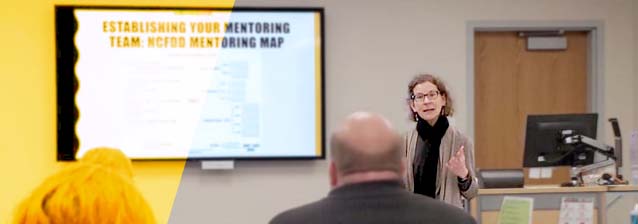
Resource Materials for New Faculty
Dedicated Instructional Design Support
Every new faculty member will have a dedicated instructional designer on-hand to help with all aspects of course design, delivery, and assessment, from creating a learning-centered syllabus to mastering and integrating Canvas tools to reviewing and redesigning your classes –we are here every step of the way. Our team of experts will help you create significant learning experiences suitable for all instructional modalities –face-to-face, online, or hybrid, in the classroom or in the field.
Teaching/Classroom Observations
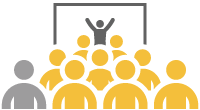 Using evidence-based practices, three members of the CETL team, all with faculty credentials and faculty development expertise, are on-hand to observe your teaching and provide feedback to enhance teaching, learning, and student engagement. Working one-on-one with the faculty, we take the time to learn about your class, your learning goals, and your teaching strategies, as well as your interests, obstacles, and even frustrations. This powerful strategy not only demonstrates your commitment to excellence in teaching and learning but fosters a climate and practice of informed innovation as an instructor. We offer custom solutions based on empirical observations, tailoring pedagogical alternatives to your specific teaching and learning environments and experiences.
Using evidence-based practices, three members of the CETL team, all with faculty credentials and faculty development expertise, are on-hand to observe your teaching and provide feedback to enhance teaching, learning, and student engagement. Working one-on-one with the faculty, we take the time to learn about your class, your learning goals, and your teaching strategies, as well as your interests, obstacles, and even frustrations. This powerful strategy not only demonstrates your commitment to excellence in teaching and learning but fosters a climate and practice of informed innovation as an instructor. We offer custom solutions based on empirical observations, tailoring pedagogical alternatives to your specific teaching and learning environments and experiences.
Going Full TILT
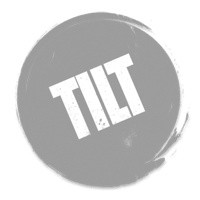 What is TILT? It is a Transparency in Learning and Teaching in Higher Ed initiative that promotes students success through: (1) a conscious understanding of how students learn –and how we help them understand their own learning, (2) sharing practices and data about student learning across institutions and disciplines, and (3) working with faculty to design clear and effective learner- and learning-centered assignments. Together, we can shrink the gap between faculty expectations and student performance.
What is TILT? It is a Transparency in Learning and Teaching in Higher Ed initiative that promotes students success through: (1) a conscious understanding of how students learn –and how we help them understand their own learning, (2) sharing practices and data about student learning across institutions and disciplines, and (3) working with faculty to design clear and effective learner- and learning-centered assignments. Together, we can shrink the gap between faculty expectations and student performance.
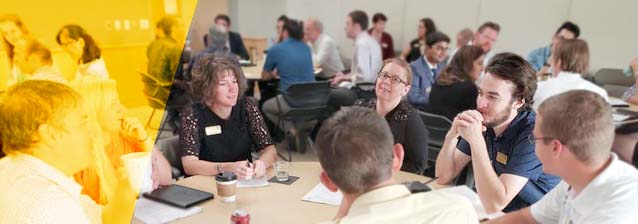
NEW FACULTY PAST ORIENTATION MATERIALS
- Teaching & Learning--Getting Started (pdf)
- So You're New Faculty? A Beginner's Guide to Teaching the "Fun" Class (pdf)
- Supporting Faculty Success & Building Academic Community (pdf)
- Teaching, Scholarship, & Service (pdf)
- Supporting Successful Scholarship (pdf)
- The Library: People, Place and Resources (pdf) & Library Handout (pdf)
- Inclusive Teaching, Learning and Technology
- Inclusion by Design
- CDAR Services (pdf) & Accommodation Reference Guide (pdf)
- Our U of I Students (pdf)
- Experiential Learning
NEW FACULTY PAST SEMINAR RESOURCE MATERIALS
- Hot Topics and Difficult Dialogues: Applied Strategies for Teaching the Tough Stuff
Brian Smentkowski, Director, Center for Excellence in Teaching and Learning
Slides - Developing a Strategic Plan for Funding Your Research
Carly Cummings, Senior Director
Slides - Words of wisdom for the first day of class . . .
- The First Day of Class: A Once-a-Semester Opportunity (pdf)
- TILT U of I Presentation (pdf)
- TILT Research (pdf)
- That New Hire Needs Your Help, The Chronicle of Higher Education, Aug 12, 2018
Instructors should be mindful of policies
regarding FERPA. Test your knowledge by
taking the FERPA Tutorial in VandalWeb under Personal Information.

